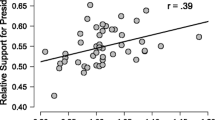Abstract
I show that it follows from both externalist and internalist theories that stupid people may be in a better position to know than smart ones. This untoward consequence results from taking our epistemic goal to be accepting as many truths as possible and rejecting as many falsehoods as possible, combined with a recognition that the standard for acceptability cannot be set too high, else scepticism will prevail. After showing how causal, reliabilist, and coherentist theories devalue intelligence, I suggest that knowledge, as contemporary theories construe it, is not a particularly valuable cognitive achievement, and that we would do well to reopen epistemology to the study of cognitive excellences of all sorts.
Similar content being viewed by others
References
Bonjour, Laurence: 1980, ‘Externalist Theories of Empirical Knowledge’, in Peter A. French, Theodore E. Uehling, Jr., and Howard K. Wettstein (eds.),Midwest Studies in Philosophy V, University of Minnesota Press, Minneapolis, pp. 53–73.
Chisholm, Roderick: 1982,Foundations of Knowing, University of Minnesota Press, Minneapolis.
Cohen, Stewart: 1986, ‘Knowledge and Context’,The Journal of Philosophy 83, 574–83.
Dretske, Fred: 1971, ‘Conclusive Reasons’,Australasian Journal of Philosophy 49, 1–22.
Ginet, Carl: 1980, ‘Knowing Less by Knowing More’, in Peter A. French, Theodore E. Uehling, Jr., and Howard K. Wettstein (eds.),Midwest Studies in Philosophy V, University of Minnesota Press, Minneapolis, pp. 151–62.
Goldman, Alvin: 1967, ‘A Causal Theory of Knowing’,The Journal of Philosophy 64, 357–72.
Harman, Gilbert: 1973,Thought, Princeton University Press, Princeton, New Jersey.
Lehrer, Keith: 1974,Knowledge, Oxford University Press, Oxford.
Lehrer, Keith: 1986, ‘The Coherence Theory of Knowledge’,Philosophical Topics 14, 5–25.
Nozick, Robert: 1981,Philosophical Explanations, Harvard University Press, Cambridge, Massachusetts, pp. 172–96.
Author information
Authors and Affiliations
Additional information
I am grateful to Warren Goldfarb for sharing his knowledge of wines with me, and to Kenneth Winkler for sharing his knowledge of birds.
Rights and permissions
About this article
Cite this article
Elgin, C.Z. The epistemic efficacy of stupidity. Synthese 74, 297–311 (1988). https://doi.org/10.1007/BF00869632
Issue Date:
DOI: https://doi.org/10.1007/BF00869632




